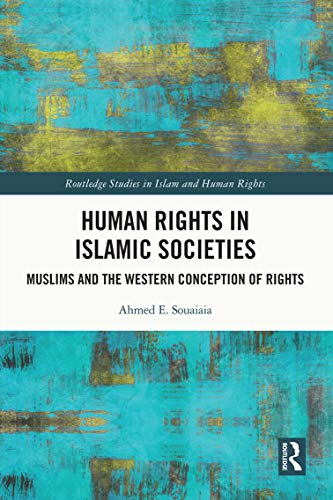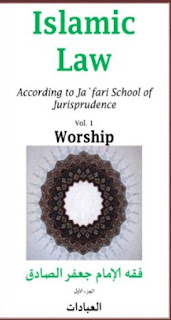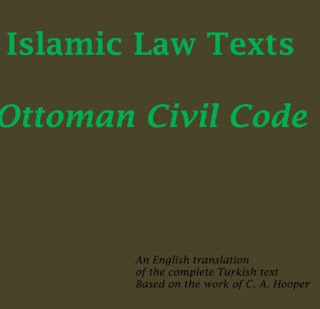Return to the Divorcee
(al-Raj'ah)
Al-raj'ah in the terminology of legists is restoration of the divorcee and her marital status. It is valid by consensus and does not require a guardian, or Dowry, or the divorcee's consent, or any action on her part, in accordance with the verses:
Their husbands are better entitled to restore them.(2:228)
So when they have reached their prescribed term, retain them honorably or seDarate from them honoura~ ....(6~:2
The schools concur that it is necessary that the divorcee being restored be in the 'iddah of a revocable divorce. Thus there is no raj'ah for: an irrevocable divorcee of an unconsummated marriage, because there is no 'iddah for her; for a triple divorcee, because she requires a muhallil; and for the divorcee of khul' against a consideration, because the marital bond between the two has been dissolved.
There is consensus among the schools that the return is effected by oral word, and they consider it necessary that the pronouncement be complete and unconditional. Thus if the raj'ah is made contingent u~on somethin~ (such as when he says: "I return to you if you sc desire"), it will not be valid.l4 Accordingly, if neither an act nor a satisfactory declaration proving raj'ah takes place on his part after the unsatisfactory pronouncement and the period of 'iddah expires even tually, the divorcee will become a stranger for him.
The schools differ regarding the possibility of raj'ah being effected by an act, such as sexual intercourse or its preliminaries, without any pronouncement preceding it. The Sháfi`ís observe: It is necessary that raj'ah be either by spoken word or in writing. Thus it is not valid by intercourse even if he intends raj'ah through it, and such intercourse with her during 'iddah is haraam, making him liable to Fair Dowry because it is an 'intercourse by mistake'.
The Málikís state: Raj'ah is valid by an act if it is with the inten tion of raj'ah. Thus, if he has intercourse without this intention, the divorcee will not return to him. But such intercourse does not make him liable to any penal consequences nor Dowry, and if she becomes pregnant consequently, the child will be attributed to him; and if she does not become pregnant, she will release herself after a single men strual course.
The \anbalís are of the opinion that raj'ah is valid by an act only if he has intercourse. Thus, when he has intercourse, she will be consi dered restored even if he does not intend it. Any act apart from inter course, such as caressing and kissing, etc., does not result in raj'ah.
According to the \anafís, raj'ah is effected by intercourse, as well as caressing, kissing, etc., by the Divorcer and the divorcee, provided it is with a sexual intent. Also, raj'ah by an act of one in sleep, or by an act performed absent-mindedly or under coercion, or in a state of insanity (as when the husband divorces his wife, turns insane, and has inter course with her before the termination of her 'iddah) is valid. (Majma' al-'anhur, bab al-raj'ah)
The Imámís state: Raj'ah is effected through intercourse, kiss ing and caressing, with and without a sexual intent, as well as by any other act which is not permissible except between a married couple. It is not necessary that raj'ah be preceded by an oral pronouncement, because the divorce'e is a wife as long as she is observing 'iddah, and all it requires is an intention of raj'ah. The author of al-Jawahir goes a step further, obsening: "Perhaps the unconditional nature of the canonical texts (al-rcass) and the fatwas requires that raj'ah take place by an act even if he does not intend to restore her by it." Sayyid Abu al-Hasan writes in al-Wasilah: "It is highly probable that it (the act) be considered raj'ah even if the intent is absent."
The Imámís attach no significance to an act of a person in sleep or something done absent-mindedly, or under a false impression (such as his having intercourse under the impression that she is not his divorce.
Raj`ah and Witnesses
The Imám;, the Hanafi and the Maliki schools state: Raj'ah not require witnessing, though it isdesirable (mustahabb). A tradit narrated from Ahmad conveys the same, and so does the m reliable opinion of al-Sháfi`í. Accordingly, it is possible to claim a c sensus of all the schools regarding the non-necessity of witnesse~ raj 'ah.
Rajcah of an Irrevocable Divorcee
The restoration of an irrevocable divorcee during 'iddah is possil only in the case of a divorcee who has been granted khul' in return fo consideration, provided that the marriage has been consummated z the divorce is not one which completes three divorces. The four schc concur that the law applicable here is the one which applies to a stran and requires a new marriage contract, along with Dowry, her consent; the permission of the guardian (if necessary), with the exception t she is not required to complete the 'iddah. (Bidayat al-mujtahid)
The Imámís observe: A divorcee of khul' is entitled to recl what she has paid as a consideration as long as she is in 'iddah, provided the husband is aware of her reclaiming the consideration and has mar~ied her sister or a fourth wife. Thus, when he is aware of it a~ there is no impediment, he is entitled to recant the divorce. By I recanting she becomes his lawful wife and there is no need for a n~ contract or Dowry. If he becomes aware of her reclaiming the conside tion but does not recant the divorce, the divorce which was irrevoca' becomes ~evocable and all the rules applicable to it and its consequen will follow, and the Divorcer will be compelled to restore what divorcee had given him for divorcing her.
Disagreement During the cIddah
If there is a disagreement between the Divorcer and a revocable divorcee, such as when he claims: "I have returned to her", and s denies it, the Divorcer will be considered to have made the return if takes place during the 'iddah, and similarly if he denies having divorced her at all, because his saying this guarantees his connection with his wife.
The burden of proof rests on the Divorcer to prove raj'ah if two differ regarding it after the expiry of the 'iddah. On his failing do so, she will take an oath that he has not returned to her, if he cla haviug returned to her by an act (such as sexual intercourse, etc.).If Divorcer claims raj'ah by oral word and not by an act, she will take XXX oath that she knows nothing about it. According to Abu Hanifah, her word will be accepted without an oath. (Ibn 'Abidin) If they differ regarding the expiry of 'iddah, such as when she claims its expiry by menstruation in a period sufficient for creating the possibility of her claim being veracious, her word will be accepted, as per consensus, though the Imámi, the Sháfi`í and the \anbalí schools also require her to take an oath. The author of al-Mughni (vol. 7, bab al raj'ah) has narrated from al-Sháfi`í and al-Khiraqi:"In all cases where we said that her word will be accepted, she will have to take an oath if the husband denies her claim."
If she claims the expiry of 'iddah by the completion of three months, the author of al-Mughni, a \anbalí , and the author of al-Shara 'In the', an Imámi, observe: The husband's word will be accepted. Both argue that the difference is in reality regarding the time of divorce and not the 'iddah, and divorce being his act, his word will be accepted.
But the author of al~awahir observes that the acceptance of the divorcer's word is in accordance with the principle of presumption regarding the continuation of 'iddah (unless the opposite is proved) and the presumption that any new situation is a latter development; but it contradicts the literal import of the canonical texts and the prevalent opinion among the legists, which place the affair of 'iddah in the woman's hand. He further adds: The sole possibility of her veracity in a matter concerning 'iddah is sufficient for its acceptance. This preference in accepting her word is in accordance with the tradition:
God has placed three things in the lands of women: menstruation, purity, and pregnancy.
In another tradition, menstruation and 'iddah are mentioned instead of the above three.
The Acceptance of a Claim Without Proof
We have referred above to the acceptance of the woman's word in matters concerning 'iddah . Here it is appropriate to explain an important rule of the Shari'ah closely related to our present discussion that has often been referred to in the works of the legists, especially those of the Imámi and the Hanafi schools. However, these legists have discussed it as a side issue, in the context of other related issues. I have not come across in the sources I know of anyone who has written a separate section on this problem except my brother, the late al-Sheikh 'Abd al Karim Maghniyyah,l 5 in his work Kitab al-qada '.
It is a known fact that both in the ancient and modern systems of law the burden of proof lies on the claimant and the negator is burdened with an oath. The rule under discussion is just the opposite of it. Ac cording to it, it is binding to accept the claimant's word where it con cerns his intention and cannot be known except from him, and which cannot possibly be witnessed. Examples of it abound in law, both in mattersrelatedto rituals ('ibadat) andtransactions(mu'amalat).Some of them are the following:
1. If something is entrusted to a person and he claims having re turned it, or claims its destruction without any negligence or misuse on his part, his word will be accepted on oath despite his being the claimant.
2. When a marriage contract is concluded between two minors by an officious third party, if one of them, on maturing, agrees and gives his/her consent to the contract and then dies before the other's majority, a part of his/her estate, equal to the minor's share will be set apart, and on his/her majority and agreement to the contract, he/she would also be required to take an oath that his/her consent is not motivated by greed for the legacy. On his/her taking the oath, he/she will take his/her share of the deceased's estate. This is so because the intention of a person can be known only from him.
3. If a person pronounces the divorce of his wife and then claims that he did not intend it, his claim will be accepted as long as she is undergoing 'Idaho.
4. The claim of a person to have paid Zakaat or khums will be accepted.
5. The claim of a woman concerning her state of menstruation, purity, pregnancy and 'Idaho will be accepted.
6. The claim of indigence and need.
7. The claim by a woman that she is free of all impediments to marriage.
8. The claim of a youth that he has attained puberty (Ihtilaam).
9. The husband's claim that he has had intercourse with his wife, after she claims that he is impotent and the judge grants him a year's time. Details of it were mentioned while discussing impotence (in the chapter on marriage).
10. The claim of a working partner in a mudaarabah partnership (where one partner contributes capital while the other contributes his skill, labor and know-how) that he has purchased a particular commodity for himself, which the partner contributing capital denies. Here the purchaser's word is accepted because he knows his intention better. There are other such examples.
Al-Sheikh 'Abdul Karen has mentioned three proofs in his book al-Qadhaa':
The first proof is confirmed consensus, both in theory and practice. I have seen jurists invoking this principle in all instances of its application, issuing Fataawees on its basis in different branches of law, consider in it as one of the most incontrovertible of principles. All this points towards a definite proof and a consensus regarding its being a general premise referred to in instances of doubt. The jurists invoke this principle as a cause while accepting the word of an insolvent person, because if his word is not accepted, it will result in a sentence of perpetual imprisonment due to his inability to prove it.
The second proof is that which has been explicitly reported in some traditions. A certain narrator says, "I asked al-'Imám al-Ridha (A), '(What is to be done) if a man marries a woman and then a doubt arises in his mind that she has a husband?' The Imám (A) replied, 'He is not required to do anything; don't you see that if he asks her for a proof, she will not be able to find anyone who can bear witness that she has no husband?"'
Thus, the impossibility of producing witnesses is common to all these instances where another person's testimony is not possible due to the act being a private fact between the person and his Lord, which can not be known except from the person himself. This is in addition to what has been narrated in the tradition regarding the acceptability of women's claim concerning menses, purity, 'Idaho and pregnancy.
The third proof is that in the event of not accepting the claimant's word in matters that cannot be known except from him, the dispute would of necessity remain unresolved and there would be no means in the Shari'ah for deciding disputes, and this is contradictory to the basic principle that says that there is a solution for everything in the Shari'ah. Therefore, in such circumstances the claimant's claim will be accepted after his taking an oath, because apart from this there is no other way to settle the dispute.
As to the need for an oath, it is in line with the consensus that in every claim in which the claimant's word is given precedence, he is bound to take an oath, because disputes are solved either by evidence or oath, and when it is not possible to produce a proof, the claimant's oath is the only alternative. Here it is not possible to burden the defendant with an oath, because among the requirements of an oath is certain knowledge of the fact for which the oath is being taken, and there is no way a defendant can have knowledge of the claimant's intention. It is necessary to point out that the need to make such a claimant take an oath arises in the case of a dispute that cannot be settled except by his oath. But if there is no such dispute, his word will be accepted without an oath (e.g. his claim of having paid Zakaat and khums, or his claim of their not being Waajib upon him because he does not fulfill the conditions for their incidence).
Also necessary for accepting the claim of such a claimant is the absence of circumstantial evidence refuting the veracity of his claim. Thus if an act of his proves his intention—such as when he buys or sells and then claims that it was unintentional—it would result in his proving his own falsity because the apparent circumstances establish his intention. As to the acceptance of a claimant that he did not intend divorce, it is limited, as mentioned earlier, to a revocable divorce as long as the divorcee is undergoing 'Idaho, and this claim of his is considered his reclaiming her. Hence his word will not be given credence and his claim will not be heard if the divorce is irrevocable or if he makes the claim after the completion of 'Iddah.




0 comments:
Post a Comment